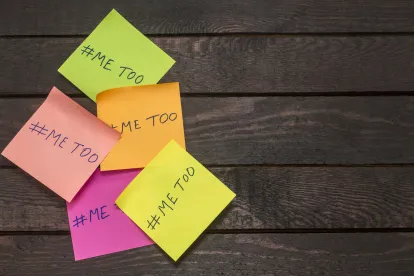Like many other states, Washington recently adopted legislation seemingly preventing the arbitration of harassment and discrimination claims in direct response to the #MeToo movement.
As we previously reported, on March 21, 2018 Washington State amended state law by prohibiting employers from requiring an employee to waive his or her right to publicly pursue a cause of action, including prohibiting the use of a confidential dispute resolution process, in any contract or employment agreement for all claims under the Washington Law Against Discrimination (WLAD), including discrimination, hostile work environment, and retaliation claims.
Many believed this type of new state statute, like Washington’s and many other states, that attempt to ban employment arbitration would be preempted by the Federal Arbitration Act (FAA). A Washington court has now confirmed this belief. In a July 12, 2019 ruling, Judge John McHale of the King County Superior Court found that the state law disallowing arbitration is preempted by the FAA. Logan v. Lithia Motors, et al., No. 18-2-19068-1 SEA.
Background
In Logan, a former employee of Lithia Motors signed an arbitration agreement providing that all employment-related claims, including statutory discrimination, harassment, and retaliation claims were to be arbitrated. The FAA applied pursuant to the language of the agreement. Once the employee’s employment ended, he brought discrimination and other claims against Lithia Motors. Lithia Motors, arguing that the FAA preempts the new state law’s exclusion of confidential alternative dispute resolution, moved to compel arbitration.
Analysis
Finding in favor of Lithia Motors, the court held that the employee’s claims (save one—a postemployment discrimination claim) must proceed in arbitration. Succinctly, Judge McHale stated that the new state law’s exclusions on the arbitration of claims under the WLAD were “preempted by federal law.” Citing the 2011 decision by the Supreme Court of the United States, AT&T Mobility LLC v. Concepion, Judge McHale specified, “Federal policy favors arbitration . . . . The Supreme Court has made it clear in recent years that it is ‘beyond dispute that the FAA was designed to promote arbitration’ and ‘embod[ies] [a] national policy favoring arbitration.’”.
Key Takeaways for Employers
Although Judge McHale’s finding only applies to Washington law, one could extrapolate that this same analysis may be applied to other states with similar laws. In light of this, employers may want to review their arbitration agreements to ensure they specifically invoke the FAA and to ensure that they do not require “confidential” or “privileged” arbitration proceedings.



 />i
/>i
